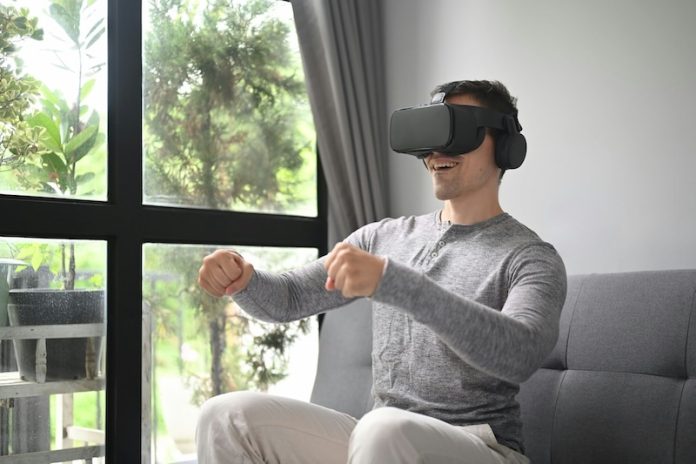
A new study suggests that virtual reality (VR) may offer meaningful pain relief for people with cancer.
By letting patients explore peaceful underwater scenes through VR headsets, researchers found not only that many felt less pain, but also that their brain activity changed in ways that support these reports.
The study, published in the journal Scientific Reports, involved a small group of cancer patients who used VR headsets while their brain activity was monitored. The results were striking: over 75% of patients who used VR reported a noticeable drop in their pain levels—more than 30%, which doctors consider a meaningful level of improvement.
What sets this research apart is that these self-reported improvements were also supported by brain scans. While patients used VR, scientists tracked changes in brain activity using a method called functional near-infrared spectroscopy. This tool measured how different parts of the brain—especially those related to pain—communicated with each other during the experience.
Lead researcher Dr. Somayeh Besharat Shafiei from Roswell Park Comprehensive Cancer Center in Buffalo, New York, believes the findings could mark a major shift in pain care.
She said the study “signals a new era” where brain imaging and digital treatments like VR could change the way we treat pain—moving away from heavy use of medications like opioids, and toward safer, non-invasive methods.
Pain is a major issue for people with cancer. According to background notes from the study, 60% to 80% of cancer pain is not properly managed. In the later stages of the illness, around 40% of patients suffer from intense pain. Many current treatments rely heavily on medications, especially opioids, which can lead to serious side effects, including addiction.
One approach doctors use to reduce pain is distraction—helping the patient focus on something other than their discomfort. VR offers a powerful way to do that. By immersing patients in beautiful, interactive environments, VR can capture their attention and give their minds a break from the constant focus on pain.
In this study, 41 cancer patients wore VR headsets that took them on calming underwater adventures. At the same time, they wore special caps that measured their brain activity. The researchers also included a control group—13 healthy people and 93 cancer patients who wore the brain caps for 10 minutes without using VR.
The results showed clear differences. The cancer patients who used VR reported much more pain relief than those who didn’t. Their brain scans also revealed changes in how the brain’s pain-related areas were working, suggesting that VR may actually influence how pain is processed, not just distract from it.
The researchers concluded that VR could be a valuable new tool for managing pain in cancer patients. It’s non-invasive, has no known side effects, and might help reduce the need for strong painkillers.
This study brings hopeful news for cancer patients struggling with pain. While the sample size was small, the results are encouraging. Not only did most participants feel better after using VR, but their brain activity also changed in a way that supports their reports.
That’s important. Pain is subjective—it’s based on personal experience—so it can be hard to measure. By using brain imaging, the researchers found a way to show that the pain relief wasn’t just in the patients’ heads—it was reflected in their brains, too.
This type of care could be a major breakthrough in pain management. For decades, pain has often been treated with medication, especially opioids. But opioids come with serious risks, including dependence, overdose, and other health problems. A safe, drug-free option like VR could make a big difference—especially for cancer patients in long-term or end-of-life care.
More studies with larger groups of people are needed to confirm these results, but the findings suggest that something as simple as a headset and a peaceful virtual world could soon play a role in helping patients feel better and live more comfortably.
If you care about cancer, please read studies about a new method to treat cancer effectively, and this low-dose, four-drug combo may block cancer spread.
For more information about cancer prevention, please see recent studies about nutrient in fish that can be a poison for cancer, and results showing this daily vitamin is critical to cancer prevention.
The research findings can be found in Scientific Reports.
Copyright © 2025 Knowridge Science Report. All rights reserved.



